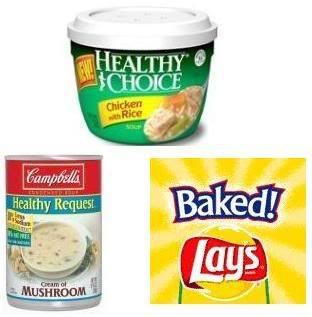
Recent healthy eating trends have seen an onslaught of new food brands hit the market that claim to be healthier than a morning run, we have snacks made from oats and microwave meals that will solve all of your health problems and still only take 60 seconds to ‘cook’.
But one small chain of grocery stores has decided to step in and help customers judge for themselves whether or not those OatDonuts really are healthy. The chain is Hannaford Brothers which is based in New England and says it is responding to consumer confusion regarding the health claims made on food labelling.
The store has created its own rating system for assessing the nutritional value of food products and has labelled over 27,000 different items with zero to three stars in its new ‘Guiding Stars’ program.
But what this new concept in food labelling reveals is that even when the regular food label says it�s healthy, this is not actually true in thousands of cases. One example is V8 vegetable juice which is promoted as being a healthy drink but in reality its high salt content makes it an unhealthy drink. If you want to get the benefit of vegetables then there is no reason for it to come with the drawbacks of salt. The same goes for Campbell�s �Healthy Request� Tomato soup which again has way too much salt to be classed as a genuinely healthy meal.
Out of all the products rated in the Guiding Stars system, 77% received zero stars and many of those included ranges which are marketed as being healthy. The problem ranges from Lean Cuisine and Healthy Choice frozen meals to basics such as whole milk.
You might ask yourself how do these companies get away with using misleading food labelling, what about the FDA? Well the wording used is crafted in such a way that it does not directly mislead people, they just focus on the good points and leave the bad points hidden in the nutritional facts chart. A fruit yoghurt may be 97% Fat Free(!) but it will also contain more sugar than a can of coke, the same goes for your favourite high vitamin cereal.
The real issue here is not regulation because whatever rules the FDA introduces, the food companies will always take them to the extreme and find someway of profiteering. The way to tackle this issue is for consumers to beware of BS and be able to separate facts from misleading marketing claims.
As long as people buy into the health claims made by food companies then the trend will continue. It will probably get a lot worse as the medical and food industry mutate to offer us pizzas that will lower your cholesterol and donuts that will give your grandaddy an erection.
Source: NYTimes.com